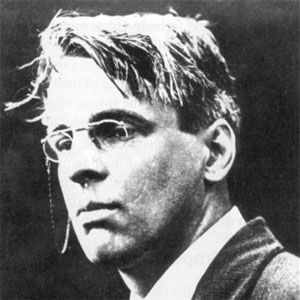One had a pretty face,
and two or three had charm,
but charm and face were in vain,
because the mountain grass
cannot but keep the form
where the mountain hare has lain.
Editor's Note: As a putative fact, the second stanza is just false and is really kind of silly. Few living things leave imprints in the grass, let alone permanently. Let alone rabbits. But that’s the contrast between memory and life. The heart holds the form of what it loved long after its love hops away.
The poem shows the texture of memory — assertive and uncertain. “Charm and face were in vain,” but for what and for whom? You can feel the conflict through the sounds: the off-rhymes like memories grasped for (“face” and “grass,” and “charm” and “form”); the end rhyme like memory found (“vain” and “lain”);* “face” and “face” repeated like a memory trace with no image, a lost experience. That’s another way that charm and face are vain, preoccupied by appearances while love remembers just an imprint, not a sight to recall but an absence to fill. —Adam Plunkett
* And notice that the poem’s only other true rhymes add to the last line's sense of recollection — "grass" and "has," and "where" with the homophonous "hare" whose tresses could leave an imprint only with the weight of memory.


Comments [3]
11.11.12
11:20
The mountain grass keeps the form of the rabbit even if momentarily. Perhaps it does so even if just for one second or for many days. And then again, it's just grass, and it is bound to regenerate and forget there ever was a hare.
Memory is not unlike that: the pretty face, the charm, they all are there momentarily, but they will be gone—time pounds forward, forcing itself upon memory. Nature will move forward and the hare's imprint will be gone, most of the experiences lived by someone will vanish with new moments, new experiences, new impressions.
Yeats' Memory is a visual simile that speaks to the frail nature of memory.
11.18.12
01:31
Editor: I forgot to say thanks for your observations when I left my first comment: very perceptive and illuminating.
12.02.12
08:20